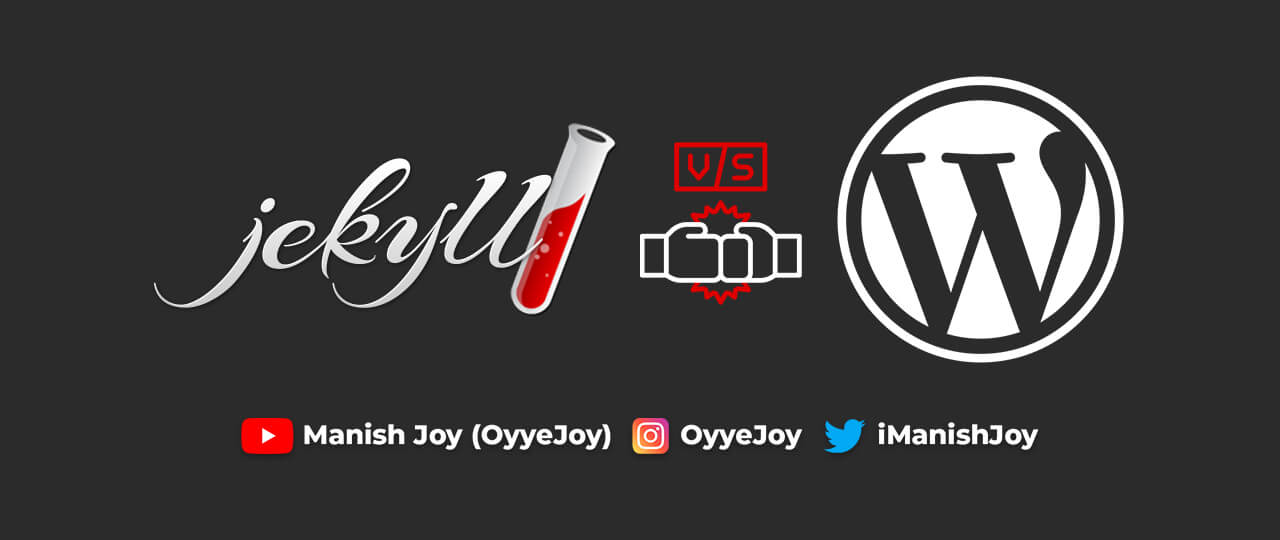Jekyll vs WordPress: Which Platform is Best for Bloggers?
When it comes to starting a blog, choosing the right platform is crucial. Two popular options for bloggers are Jekyll and WordPress. Each has its own strengths and weaknesses, making them suitable for different types of bloggers. In this blog post, we will compare Jekyll vs WordPress, highlighting their features, pros, and cons to help you make an informed decision.
Table of Contents
- Introduction to Jekyll and WordPress
- Ease of Use
- Customization and Flexibility
- Performance
- Security
- Cost
- SEO Capabilities
- Conclusion
Introduction to Jekyll and WordPress
Jekyll is a static site generator written in Ruby. It takes your content, written in Markdown or HTML, and creates a static website. Jekyll is highly favored by developers and tech-savvy bloggers who prefer a hands-on approach and want full control over their site’s structure and performance.
WordPress is a dynamic content management system (CMS) written in PHP. It powers over 40% of all websites on the internet. WordPress offers a user-friendly interface and a vast array of plugins and themes, making it accessible to bloggers without a technical background.
Ease of Use
Jekyll:
- Requires knowledge of command-line operations and Git.
- Ideal for bloggers comfortable with coding and managing a development environment.
- Limited graphical user interface (GUI) support.
WordPress:
- Beginner-friendly with an intuitive dashboard.
- No coding knowledge required for basic usage.
- Extensive documentation and community support, perfect for new bloggers.
Customization and Flexibility
Jekyll:
- Highly customizable through code.
- Uses Liquid templating language for advanced customization.
- Flexible structure, but changes require coding skills.
WordPress:
- Thousands of themes and plugins available for easy customization.
- Drag-and-drop page builders for creating blog layouts.
- No coding required for most customizations, but developers can extend functionality for advanced needs.
Performance
Jekyll:
- Static sites load faster as they don’t require database queries.
- Lower server resource usage.
- Ideal for content-heavy blogs with a focus on speed and reliability.
WordPress:
- Can be slower due to dynamic content and database queries.
- Requires optimization techniques (caching, CDN, etc.) for better performance.
- Plugins can affect load times, so careful management is needed.
Security
Jekyll:
- More secure by default due to its static nature.
- No database, so fewer attack vectors.
- Relies on GitHub Pages or other static site hosts for deployment, enhancing security.
WordPress:
- Frequent target for hackers due to popularity.
- Requires regular updates and security plugins to maintain security.
- Vulnerable plugins and themes can be exploited if not managed properly.
Cost
Jekyll:
- Free to use, but may incur costs for hosting.
- No need for premium plugins or themes, keeping costs low for bloggers on a budget.
WordPress:
- Free core software, but premium themes and plugins can add up.
- Hosting costs vary based on provider and site requirements.
- Managed WordPress hosting can be more expensive but offers additional features and support.
SEO Capabilities
Jekyll:
- Requires manual optimization for SEO.
- Lacks built-in SEO tools, but can integrate with third-party tools.
- Clean, fast-loading code is beneficial for SEO, which is crucial for blog visibility.
WordPress:
- Numerous SEO plugins available (e.g., Yoast SEO).
- User-friendly tools for optimizing blog content and metadata.
- Dynamic content can benefit from regular updates and SEO strategies to improve search engine rankings.
Conclusion
Choosing between Jekyll and WordPress depends on your specific needs and technical expertise as a blogger.
- Choose Jekyll if: You have coding skills, prefer static sites, prioritize security and performance, and want a highly customizable setup. It’s perfect for tech-savvy bloggers who want complete control over their blog.
- Choose WordPress if: You seek ease of use, extensive customization options without coding, robust SEO tools, and a vast support community. It’s ideal for bloggers who want a quick start with plenty of resources and support.
Both platforms have their merits, so consider your blogging goals and personal preferences before making a decision. Whether you go with Jekyll or WordPress, you can build a successful blog tailored to your needs.
Liked the post, share with others:




